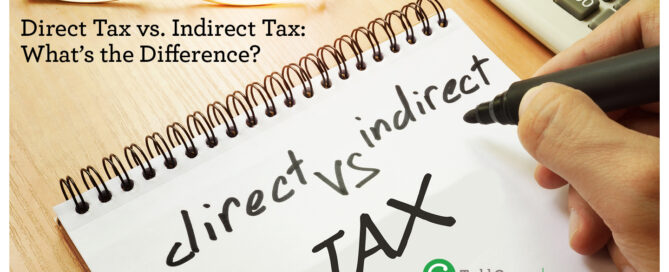5 Things to Know about 2023 Taxes
Are you realizing Tax Day is quickly approaching and you still haven’t noted what’s changed for 2023? Deadlines have a way of sneaking up, and luckily, we’re here to remind you of five things to know about 2023 taxes before you file.
Tax brackets changed slightly.
First on the list of things to know about 2023 taxes is that the tax brackets, or income ranges, for each of the seven tax rates shifted to account for inflation. To clarify, the rates didn’t change, but there was an increase in the income brackets.
The top rate remains at 37% for single filers, but the income rate increased for single filers with an income of $539,900 or more in 2022 to $578,126 or more in 2023, for example. For a married couple filing jointly, the income range increased to $693,751 or more in 2023 versus $647,850 or more in 2022.
The lowest rate is still 10%. The income brackets have bumped up to $0 to $11,000 for single filers and $0 to $22,000 for married couples filing jointly. Review all seven tax rates and brackets here.
The standard deduction increased.
Another change for taxes in 2023 is the standard deduction will increase too.
For instance, according to the IRS, the standard deduction for married couples filing jointly for 2023 increases to $27,700, which is a $1,800 jump from 2022. What’s more, the standard deduction for single taxpayers and married couples filing separately increased by $900, rising to $13,850 in 2023. For heads of households, the standard deduction increases to $20,800 in 2023, a $1,400 boost from 2022.
The Child Tax Credit may give you a tax break.
If you have a qualifying child under 17 in 2023, the maximum Child Tax Credit is $2,000 per child if your annual income is less than $200,000 or $400,000 for a joint return. For other qualified dependents, you can claim a $500 credit.
Changes were made to retirement contribution limits.
For those planning for retirement, it’s important to note that the contribution limits for retirement accounts have increased for 2023. The contribution limit for 401(k) plans has increased from $19,500 to $20,500, while the catch-up contribution limit for individuals over 50 has increased from $6,500 to $7,000.
This increase in contribution limits provides an opportunity for individuals to save more for retirement and potentially reduce their taxable income.
Double-check for any energy tax credits for 2023.
Be sure to ask your tax professional about the changes and additions to energy tax credits in 2023 under the Inflation Reduction Act. If you’re a homeowner who made qualifying energy-efficient improvements, for instance, you may be able to claim up to 30% of the improvement expenses in 2023 instead of just 10% previously.
Summary
Now that we’ve shared these things to know about 2023 taxes, it’s time to spring into action. Whether you want to make sure you are maximizing your tax return or you want to ensure the information is accurate, we are here to help. Contact us to learn more about our tax services, and keep reading our blogs for more industry news and tax tips.










